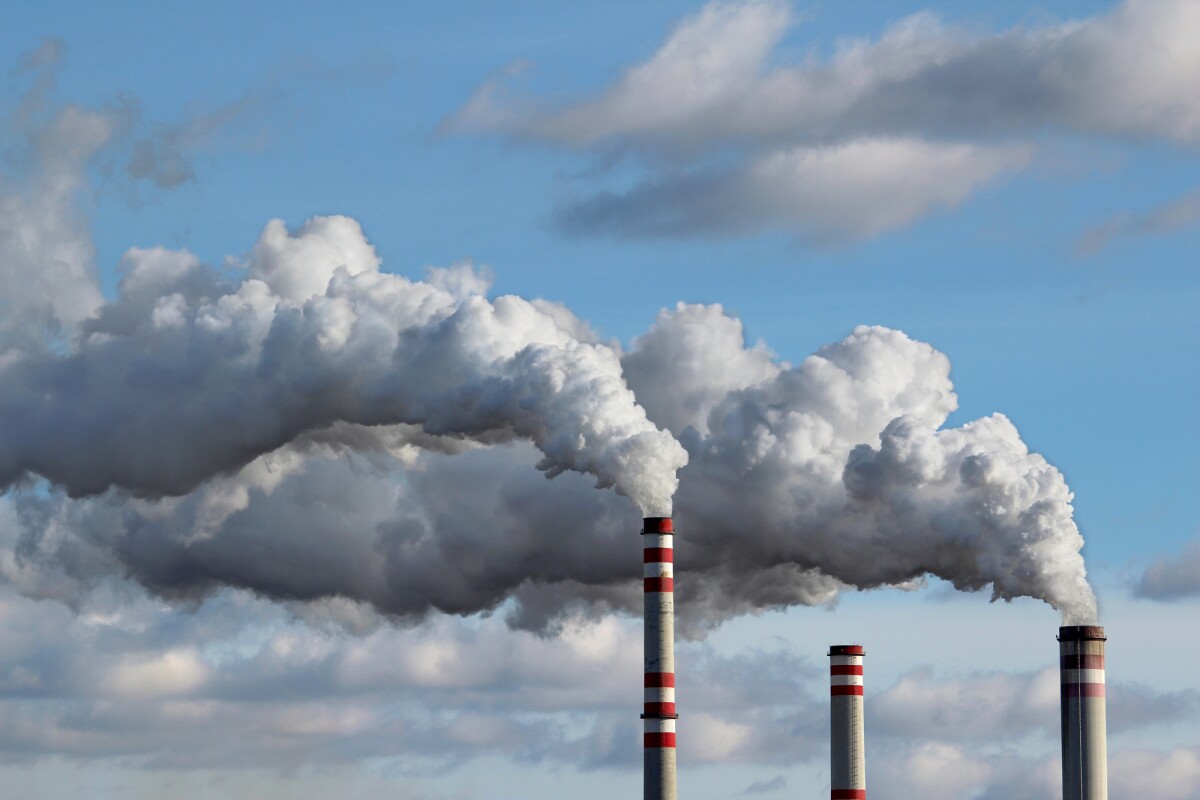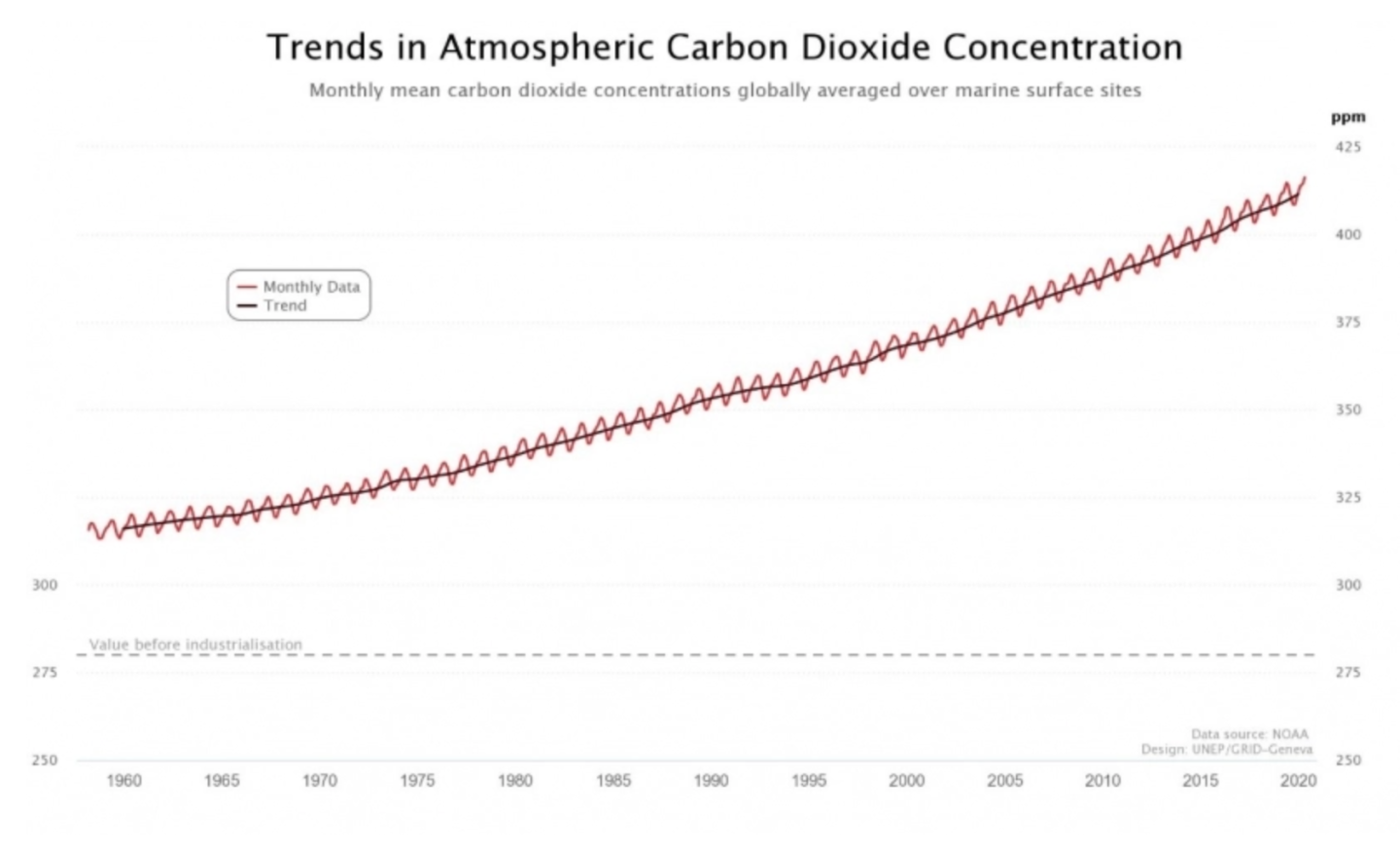What makes all this insulting is that the rise of CO2 is now clearly independent of Global temperatures. It always has been but then politicians would not be able to bdiscuss the werather
We are burning a lot of carbon still. This will now start to drop. The conversion to electrics has well begun and will only take a maximum of fifteen years to effect.
.Other sources of natural eneergy will also be tapped by public policy support. We have additional hydro, ample Geothermal for grid power. Throw in our atmospheric pressure stack as well for grid power. That we can bui;ld everywhere.
The bottom line is that replacing oil with electric is completely feasible.
There will come a day in which we will want to burn oil and gas to sustain CO2 content in the atmosphere in order to fully terra form the Earth.
Atmospheric CO2 soars to record heights in spite of global pandemic
By Nick Lavars
May 12, 2020
While the coronavirus pandemic has led to a decline in carbon emissions in some areas, the effect is expected to be short-lived
The wheels we humans have set in motion concerning carbon dioxide emissions and climate change are going to take some stopping, and the latest data from Hawaii's Mauna Loa Observatory are another clear indicator of this. Scientists there have logged record concentrations of CO2 in the atmosphere, in line with a steady trend that defies even the widespread and stringent slowdown in global activity as a result of the coronavirus pandemic.
Scientists have been monitoring the concentrations of carbon dioxide in the atmosphere from Hawaii since 1958, and have plotted a steadily accelerating upward curve in that time. Measured as parts per million (ppm), concentrations of below 350 ppm are what experts consider safe to preserve a livable planet, but data from monitoring stations has shown we are now well beyond that point.
During the 1960s when carbon concentrations in the low 300s ppm, levels rose gradually at a rate of around 0.9 ppm per year. Fast-forward to the 2010 to 2019 period, and concentrations increased at a rate of 2.4 ppm per year, indicating that upward trend is only accelerating.
In May last year, scientists at the Mauna Loa Observatory recorded an atmospheric carbon dioxide concentration of 415.26 ppm. This was a level never reached before, but has been upstaged just 12 months later with a new reading of 416.21 ppm. Using ice core records to measure CO2 concentrations across the planet's history, scientists from the National Oceanic and Atmospheric Association (NOAA) confirm these levels have not been seen on Earth in 800,000 years.
Chart plotting CO2 concentrations in the atmosphere
UNEP World Environment Situation Room.
As a very separate phenomenon, the lockdowns spurred by the global spread of the coronavirus have led to significant reductions in some types of air pollution, namely harmful nitrogen dioxide and small particulate matter. This has been driven by a slowdown in air travel, road traffic and industrial activity, but the United Nations Environment Programme (UNEP) notes that the global energy mix has remained the same, with around two thirds generated by burning fossil fuels.
While the pandemic is causing dips in carbon emissions in some locations, these are expected to be short-lived, and with the same underlying energy infrastructure the UNEP says that "none of the fundamentals" have changed. And without a serious transformation on this front, we are unlikely to undo the cumulative effects of decades worth of human-generated carbon emissions entering the atmosphere.
“Without fundamental shifts in global energy production, we should have no reason to expect a lasting reduction in emissions,” says UNEP climate change expert Niklas Hagelberg. “COVID-19 instead provides us a chance to take stock of the risks we are taking in our unsustainable relationship with our environment and seize the opportunity to rebuild our economies in more environmentally responsible ways."


No comments:
Post a Comment